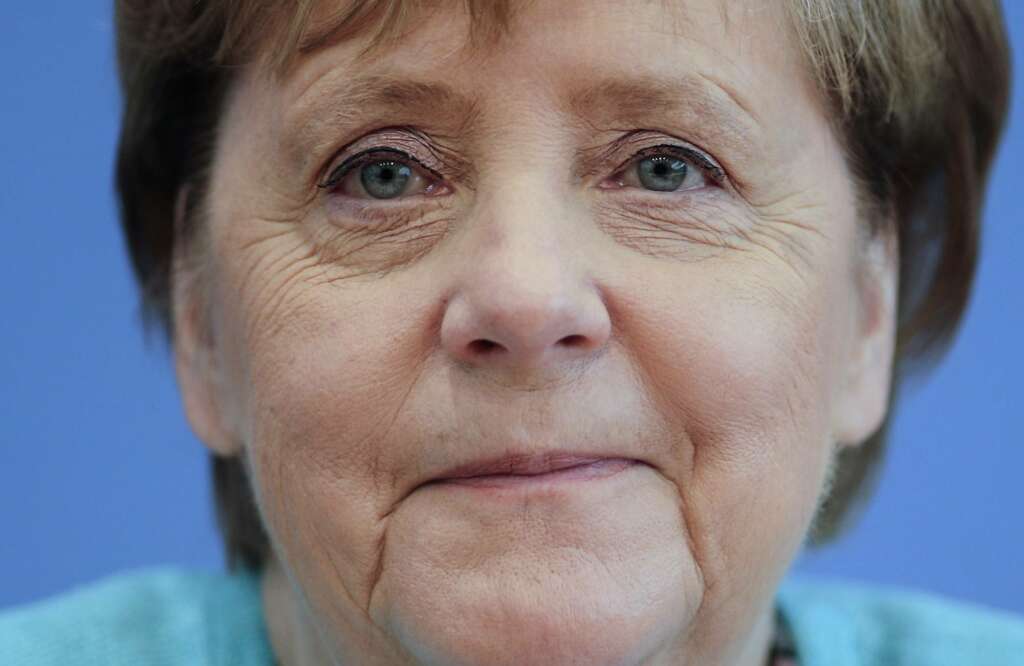
BERLIN (AP) — With just months to go before her 16-year leadership of Germany ends, Chancellor Angela Merkel on Thursday defended her efforts to promote gender equality and curb climate change but expressed regret that some decisions, in hindsight, were made too late.
Merkel has generally resisted commenting on her own record, insisting that it is up to others to assess her legacy. But during a wide-ranging news conference in Berlin, the chancellor spoke frankly about her career and experience as one of the longest-serving democratically elected leaders.
Asked about criticism that she hadn’t been much of a feminist, Merkel, 67, said that while others might have done more, she thinks she contributed to gender equality while in office – “and not just because I am female.”
Still, her initial hopes that voluntary measures would be enough to improve the situation for women in Germany were dashed when reality showed few companies making serious efforts to employ more female executives, she said. Her government eventually drew up legislation requiring large companies to put a minimum number of women on their boards.
“I have to honestly say that back in 1990, when I went into politics, I imagined it would be easier,” Merkel told reporters.
She added that, over time, she had concluded that “promoting women is unthinkable unless there is a change in male behavior patterns, particularly when it comes to sharing the chores of family and career.”
Merkel recalled how her minister for families, Ursula von der Leyen was attacked by fellow conservatives more than a decade ago over plans to require fathers to take parental leave for families to qualify for maximum state aid. Von der Leyen is now president of the European Union’s executive commission.
Many new fathers, including those working in her chancellery, have since taken advantage of the system to spend time with their children, Merkel said, adding: “It’s wonderful to see how things have changed quite naturally among young families.”
Merkel also defended her decision to end Germany’s use of nuclear power next year, even if it makes it harder for the country to reduce its greenhouse gas emissions in the short term.
The decision, made after the Fukushima nuclear disaster 10 years ago, is regarded as one of the pivotal moments of Merkel’s tenure. Critics have said the move places a double burden on Germany as it seeks to cut carbon emissions to ‘net-zero’ by 2045.
“There are other countries that choose differently, and in doing so it will be easier for them, in some ways, to achieve climate neutrality,” the German leader said. “I still believe that in the long term nuclear energy isn’t a sustainable form of energy production.”
The phase-out of nuclear power by the end of 2022 will make Germany more reliant on coal over the coming years compared to France or Britain. But the German government has also committed to ending the burning of coal by 2038, a goal Merkel said could only be achieved by significantly expanding the use of renewable energy and relying on less-polluting natural gas as a bridge technology.
She rejected the idea that a future government might reverse the nuclear decision, saying that “for Germany, the die is cast.” She called instead for greater efforts to expand production of hydrogen, a carbon-free fuel that experts say will be needed by the country’s industry.
As Germany’s environment minister in the 1990s, Merkel was instrumental in negotiating the Kyoto Protocol, which sought to impose emissions targets on countries. She acknowledged that the approach failed because many governments refused to sign up and that it wasn’t until the Paris climate accord in 2015 that the current system of voluntary targets gained traction.
“I held onto the Kyoto Protocol for a long time,” Merkel said. “That was a mistake, because it wasn’t possible to make it binding internationally. Maybe one should have gone down the path of voluntary commitments faster.”
Last week’s deadly floods have fueled the debate in Germany over tackling global warming. Experts say such extreme weather will become more frequent and severe as the planet heats up.
“We alone can’t save the world’s climate,” Merkel said, noting that Germany has already cut its emissions by over 40% compared to 1990 levels. “But the way in which we proceed can be an example for others.”
___
Jordans reported from Bonn, Germany.
Copyright © 2021 . All rights reserved. This website is not intended for users located within the European Economic Area.
